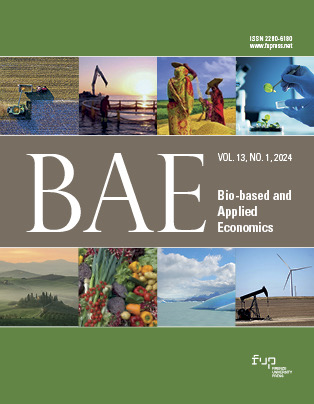Exploring macro-environmental factors influencing adoption of result-based and collective agri-environmental measures: a PESTLE approach based on stakeholder statements
Published 2023-09-04
Keywords
- agri-environmental contracts,
- German and Austrian stakeholders,
- survey,
- acceptance
How to Cite
Copyright (c) 2023 Theresa Eichhorn, Lena Schaller, Katri Hamunen, Tania Runge

This work is licensed under a Creative Commons Attribution 4.0 International License.
Funding data
-
European Commission
Grant numbers 817949
Abstract
To promote more environmentally friendly and cost-effective agri-environmental-climate measures in the European Union, novel approaches such as result-based and collective schemes are advocated. This study explores macro-environmental factors facilitating or impeding the adoption of such schemes. By means of a PESTLE analysis and based on a survey of 85 stakeholders from Austria and Germany, we identify major adoption factors within the political, economic, social, technological, legal, and environmental domains. Our results indicate that economic, legal, and social factors are the most influential, with fair payment, clear contract design, and social relations being the most commonly mentioned. Moreover, the unpredictability of nature is a major impediment to the adoption of result-based schemes, while social dynamics and farmers’ attitudes are key factors for a successful implementation of collective contracts. Overall, the study provides strategic and practical insights that can support the design and implementation of novel agri-environmental-climate measures under the Common Agricultural Policy.






